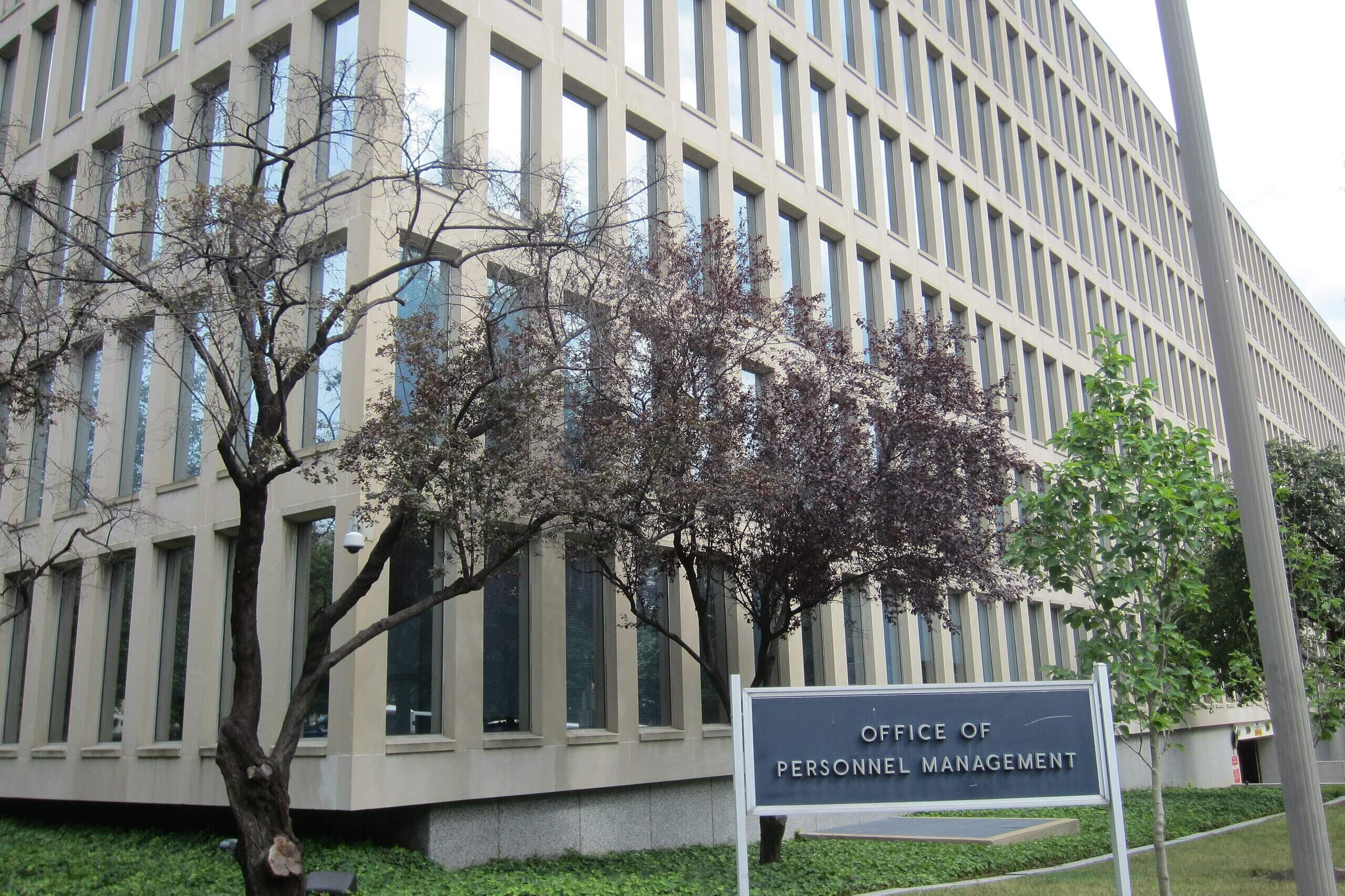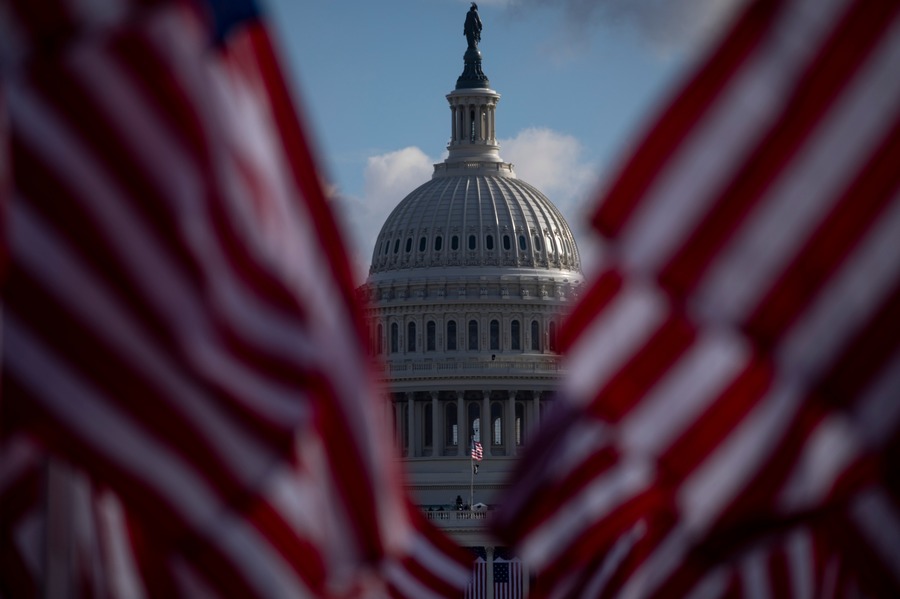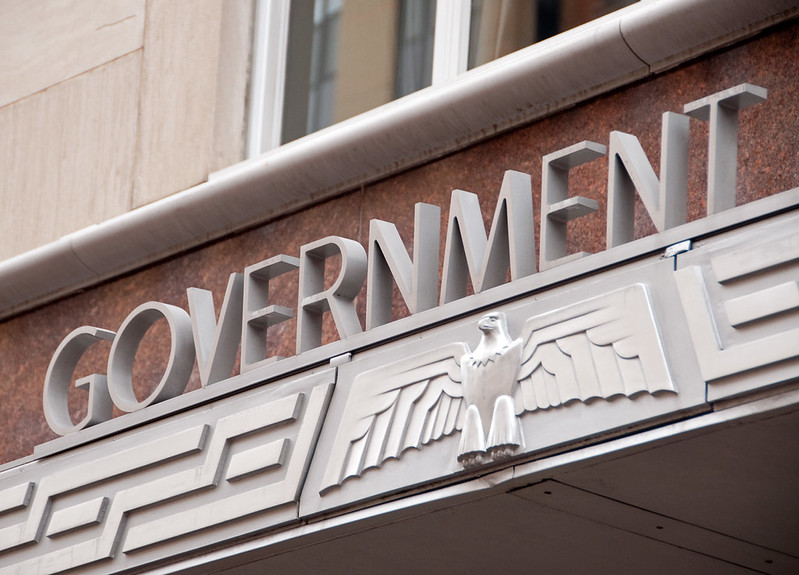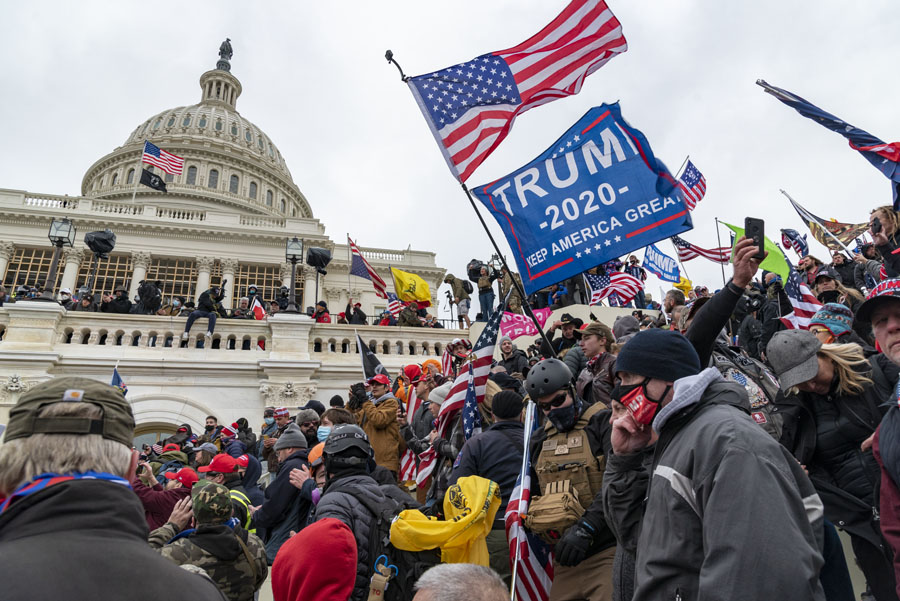The Return of Schedule F

One of the most anticipated actions of the Trump administration was the return of Schedule F (now Schedule Policy/Career). Schedule Policy/Career reclassifies positions of a “confidential, policy-determining, policy-making, or policy-advocating” (often shortened to “policy-influencing” positions) into the excepted service, which is a category of civil service positions that are traditionally exempt from competitive examination and, therefore, easier to hire. Yet the Trump administration does not intend to use Schedule Policy/Career to more easily hire individuals to policy-influencing positions. Rather, individuals in Schedule Policy/Career will be easier to remove, because these individuals will not enjoy the tenure protections ordinarily afforded to federal employees and will not have a right to appeal their removal to the Merit Systems Protection Board.
Although the Biden administration promulgated regulations designed to hinder future presidents from reinstating Schedule F, President Trump declared that the Biden administration’s regulations were “hereby revoked” and unenforceable, likely in violation of the Administrative Procedure Act. He further ordered the Office of Personnel Management (OPM) to propose rules reinstating Schedule Policy/Career on his first day in office. OPM published its proposed rule in the Federal Register on April 23. Comments on OPM’s proposed rule are due May 23.
Schedule Policy/Career threatens to upend the merit principles that have governed personnel policy since the Civil Service Reform Act of 1978. The implementation of Schedule Policy/Career will politicize the federal workforce and erode the capacity of federal agencies to perform the tasks delegated to them by Congress and the president. The Trump administration’s attack on the civil service will continue to frustrate the basic government services that protect American lives.
A Brief History of Schedule F and Schedule Policy/Career
In October 2020, Trump established Schedule F with Executive Order 13957. The order instructed agencies to reclassify policy-influencing positions into the excepted service. The order described five characteristics indicative of policy-influencing positions:
- Substantive participation in the advocacy for or development or formulation of policy;
- Supervision of attorneys;
- Substantial discretion to determine the manner in which the agency exercises functions committed to the agency by law;
- Viewing, circulating, or otherwise working with proposed regulations, guidance, executive orders, or other non-public policy proposals or deliberations generally covered by deliberative process privilege;
- Conducting, on the agency’s behalf, collective bargaining negotiations.
OPM would approve agencies’ lists of positions that should be transferred to Schedule F. Yet the first effort to implement Schedule F never got very far. By the end of the first Trump administration, only two agencies had submitted plans to OPM, and no agency had actually placed any positions into Schedule F.
Following his inauguration, President Biden repealed Executive Order 13957. Subsequently, OPM finalized a rule narrowly defining policy-influence positions to include only non-career political appointees. Moreover, OPM’s final rule preserved tenure protections for employees involuntarily reclassified into the excepted service. Left in place, this rule would have prevented future presidents from using something like Schedule F to reorganize the federal workforce.
On his first day in office, President Trump reinstated Schedule F with Executive Order 14171. The order made several notable changes. First, it renamed Schedule F as Schedule Policy/Career, emphasizing that the new schedule would apply to career employees—not political appointees. Second, the order expanded the characteristics indicative of policy-influencing positions to include “directly or indirectly supervising employees in Schedule Policy/Career positions” and “duties that the Director otherwise indicates may be appropriate for inclusion in Schedule Policy/Career.” Third, the order transferred the authority to the president—rather than OPM—to classify positions as policy-influencing positions. Fourth, the order added language that, although employees need not support the president’s current agenda, they must nevertheless “faithfully implement administration policies to the best of their ability.” According to the order, “[f]ailure to do so is grounds for dismissal.” In sum, the order created a new classification of employees expected to loyally implement the president’s agenda and made it easier to remove employees who failed to advance that agenda.
On April 23, OPM proposed a rule implementing Schedule Policy/Career. The proposed rule offers a lengthy rationale for Schedule Policy/Career, drawing heavily on theories of unitary executive theory, empirical research, and historical practice. The new rule offers insights into what federal employees, scholars, and other commentators should expect from Schedule Policy/Career.
The Statutory Framework for Schedule/Policy Career
The Civil Service Reform Act of 1978 adopted nine merit principles to guide the development and implementation of personnel policy throughout the executive branch. The principles embrace merit-based hiring, specifying that selection and promotion of employees “should be determined solely on the basis of relative ability, knowledge, and skills, after fair and open competition which assures that all receive equal opportunity.” Likewise, merit and accountability guide removal of employees from the civil service. The merit principles state that employees should be “protected against arbitrary action, personal favoritism, or coercion for partisan political purposes,” and the act further protects employees against reprisal for political affiliation and whistleblowing. It is unclear how Schedule Policy/Career furthers these merit principles.
What is the statutory basis for Schedule Policy/Career? Schedule Policy/Career reclassifies certain employees to take advantage of several exceptions within the civil service laws. By default, positions in the federal workforce are placed in the competitive service. Agencies must fill positions in the competitive service through competitive examination. Yet the president may except positions from the competitive service “as nearly as good conditions of good administration warrant.” Positions excepted by the president are classified in the excepted service. Consequently, presidents have the authority to make hiring for certain positions easier by removing the constraints imposed by competitive examination.
Although Schedule Policy/Career places positions in the excepted service, it does not appear to take advantage of the exceptions to the hiring procedures. OPM’s proposed rule envisions that positions in Schedule Policy/Career “will be filled using competitive hiring procedures.” The regulatory text says, “Agencies shall make appointments to positions in Schedule Policy/Career of the excepted service in the same manner as to positions in the competitive service, unless such positions would, but for their placement in Schedule Policy/Career, be listed in another excepted service schedule.” Accordingly, the regulations require agencies to fill these positions using the same procedures (often competitive examination) they would have used if the position was not reclassified into Schedule Policy/Career. Likewise, individuals appointed to Schedule Policy/Career will obtain competitive status after one year of service, meaning they can transfer to positions that would otherwise require competitive examination. On its face, Schedule Policy/Career has less of an influence on the hiring for these positions. (Practically, however, Schedule Policy/Career will discourage individuals from pursuing a career in the federal government. More on this below.)
The greatest risk posed by Schedule Policy/Career comes from the ability to remove federal employees without due process. Ordinarily, employees in both the competitive and excepted services enjoy tenure protections and can be removed only for “such cause as will promote the efficiency of the service.” In many instances, employees removed from the civil service may appeal the agency’s personnel action to the Merit Systems Protection Board and, eventually, the federal courts.
Schedule Policy/Career, however, relies on a clever statutory-interpretation argument. The civil service laws exempt positions of a “confidential, policy-determining, policy-making, or policy-advocating” character from its protections. For example, these employees are not protected against prohibited personnel practices (such as appointment and removal based on partisan affiliation) and are exempted from “for cause” protections enjoyed by other employees. Consequently, individuals occupying positions in Schedule Policy/Career will be removable at will and not entitled to any appeal before the Merit Systems Protection Board. These employees are wholly unprotected from political reprisal. Although OPM’s proposed rule says that employees in Schedule Policy/Career “are not required to personally or politically support the current President or the policies of the current administration,” this statement is meaningless without any mechanism for employees to challenge their removal.
The Biden administration’s rule sought to protect against the reclassification of existing employees by promulgating regulations that would afford tenure protections to employees involuntarily transferred to the excepted service. OPM’s rule removes those protections. Consequently, employees in positions transferred to Schedule Policy/Career will lose the tenure protections they enjoyed in either the competitive service or other schedules of the excepted service.
While much of the attention on Schedule Policy/Career has focused on its effects of removal, it also affects the benefits afforded to employees in these positions. By statute, employees in policy-influencing positions may not receive certain benefits, such as recruitment bonuses, retention bonuses, or student loan repayment. For example, agencies may agree to repay “any student loan” in order to “recruit or retain highly qualified personnel.” In fiscal year 2013, agencies made student loan payments for over 13,000 employees, totaling over $130 million in benefits. Yet the statute specifies that “[a]n employee shall be ineligible for benefits under this section if the employee occupies a position that is excepted from the competitive service because of its confidential, policy-determining, policy-making, or policy-advocating character.” (Individuals in Schedule Policy/Career would likely still be able to participate in Public Student Loan Forgiveness, which is the most common way that public servants receive student loan forgiveness.) By law, policy-influencing positions do not enjoy the stability and benefits that attract individuals to public service, making it harder to hire positions in Schedule Policy/Career.
The president undoubtedly has the authority to create some version of Schedule Policy/Career. But whether Schedule Policy/Career poses a new, existential threat to the civil service and the merit principles depends on the meaning of “confidential, policy-determining, policy-making, or policy-advocating.” Congress did not define this phrase in the text of the Civil Service Reform Act. Consequently, the reach of Schedule Policy/Career depends on its implementation by the president and OPM.
Defining Policy-Influencing Positions
OPM does not explicitly define “confidential, policy-determining, policy-making, or policy-advocating” in its proposed rule. Rather, the rule simply amends OPM’s regulations to specify that the president may determine which positions qualify as policy-influencing positions. Curiously, the regulations do not explicitly incorporate the characteristics identified by Executive Order 14171. An OPM memo accompanying that order clarifies that those characteristics “are guideposts; they are not determinative.” Both the president and agencies may consider additional characteristics in deciding whether to reclassify a position under Schedule Policy/Career.
The lack of a meaningful definition or criteria will likely result in inconsistent application of Schedule Policy/Career across agencies. All agencies rely on standardized occupational codes developed by OPM. The same occupation may be treated differently by different agencies. Moreover, presidents and agencies may choose to classify certain positions based on pretextual reasons, such as the perceived partisanship of the current position holders.
Experience illustrates that the threat of inconsistent application is real rather than hypothetical. Following the creation of Schedule F in 2020, agencies varied wildly in their efforts to reclassify positions. The Office of Management and Budget sought to reclassify 415 of its 610 employees, and the Federal Energy Regulatory Commission identified half of its positions as eligible for reclassification. Meanwhile, the Department of the Treasury claimed no position qualified as a policy-influencing position. The threat of inconsistent application is greater now that the president—who has no meaningful training in federal personnel policy—must approve the agency plans rather than OPM.
While OPM does not define policy-influencing position, its proposed rule explicitly rejects one possible definition. The rule adopted during the Biden administration confined “confidential, policy-determining, policy-making, or policy-advocating” to “noncareer political appointment” positions “who are responsible for furthering the goals and policies of the President and the Administration.” OPM’s latest rule rejects the idea that policy-influencing positions are limited to political appointees.
The Biden administration’s definition better comports with the legislative history of the Civil Service Reform Act and other laws enacted by Congress. For context, it is worth considering why the policy-influencing exception appears in the Civil Service Reform Act. In 1953, President Eisenhower used his authority to except positions to create a new class of low-level political appointees (known as Schedule C appointees) within the excepted service. Eisenhower’s executive order defined—and the civil service rules continue to define—Schedule C as “positions of a confidential or policy-determining character.” In passing the Civil Service Reform Act, Congress added the exception for policy-influencing positions to the statute to preserve Schedule C. The Senate Committee Report explained, “[A] new exception for positions of a confidential, policy-determining, policy-making, or policy-advocating character, is an extension of the exception for appointments confirmed by the Senate. These positions are currently placed in Schedule C (positions at GS-15 and below) or filled by Non-Career Executive Assignment (GS-16, -17, and -18).”
The policy-influencing exception was incorporated based on an understanding that a relationship exists between the employee and the incumbent president. The Senate Committee Report explains, “The concept of tenure and protection against dismissal is contrary to the confidential relationship between incumbent and supervising official, and the commitment to Administration policy objectives, required by those filling such positions.” This description of these positions envisions that policy-influencing positions would be temporary and political by their nature—not career positions as proposed by OPM’s latest rule. Likewise, the House Committee Report described these positions as “generally political appointees.” For over half a century, Congress and the president have understood “confidential, policy-determining, policy-making, or policy-advocating character” to mean political appointees who work closely with the administration and depart following the inauguration of a new president. The Trump administration’s rule and guidance departs from this long-standing interpretation.
Definitions in other statutes reflect this long-standing interpretation. Statutes related to employment in the Department of Agriculture, Department of Veterans Affairs, and NASA define “political appointee” to mean “a position which has been excepted from the competitive service by reason of its confidential, policy-determining, policy-making, or policy-advocating character.” Consistent with Congress’s original understanding in the Civil Service Reform Act, these definitions suggest that Congress has treated policy-influencing positions and political appointees as synonymous, giving credence to the Biden administration’s more restrictive definition.
OPM’s latest rule rejects the legislative history and these other definitions. In rejecting the legislative history, OPM grounds its rationale in textualism—a theory of statutory interpretation that believes that the plain meaning of the statute should guide interpretation rather than congressional purpose. OPM asserts that “legislative history is not the law” and “Congressional intent is determined by the text of the law Congress passes.” In rejecting the definitions contained in other portions of the U.S. Code, OPM states that these provisions “universally state that their definitions apply on for purposes of that particular law or section of the U.S. Code.”
Nevertheless, the guidance provided by Executive Order 13957 stretches the plain and ordinary meaning of policy-influencing. For example, the executive order seeks to reclassify positions engaged in “viewing, circulating, or otherwise working with proposed regulations, guidance, executive orders, or other non-public policy proposals or deliberations generally covered by deliberative process privilege.” Thousands of federal employees view proposed policy documents without meaningfully contributing to their development. The plain meaning of “confidential, policy-determining, policy-making, or policy-advocating character” suggests active involvement in the creation of policy—not the mere viewing of policy documents.
The implementation of Schedule F during the first Trump administration illustrates the extent to which the administration seeks to depart from the plain and ordinary meaning of policy-influencing. In its submission to OPM, the Office of Management and Budget sought to reclassify human resource specialists, administrative assistants, and information technology specialists as Schedule F positions. The plain meaning of policy-influencing position does not incorporate positions that perform clerical or administrative functions without a meaningful relationship to policymaking. Yet the lack of a definition within OPM’s proposed rule makes it difficult to know whether these positions will receive similar treatment this time.
There are reasons to believe that Trump and the agencies will again implement Schedule Policy/Career widely. OPM estimates that 50,000 positions would be moved to Schedule Policy Career but acknowledges that the president “may move a greater or smaller number of positions.” That number may be a floor—not a ceiling.
The Justifications and Effects of Schedule Policy/Career
What effects will Schedule Policy/Career have on the federal workforce? At its core, Schedule Policy/Career will politicize the federal workforce by making it easier to remove federal employees perceived as resisting the president or his agenda. The American Federation of Government Employees has described Schedule Policy/Career as a “shameless attempt to politicize the federal workforce.” Shortly after the original inception of Schedule F, Ron Sanders—the chair of the Federal Salary Council in the first Trump administration—submitted a resignation letter, explaining, “[I]t is clear that its stated purpose notwithstanding, the Executive Order is nothing more than a smokescreen for what is clearly an attempt to require the political loyalty of those who advise the President, or failing that, to enable their removal with little if any due process.”
Even if the administration does not exercise its discretion in a political manner, civil servants already perceive Schedule Policy/Career as politicizing the workforce. Comments received by OPM from self-identified civil servants illustrate this perception. One employee of the Social Security Administration described the agency’s intent to reclassify a broad swath of its employees:
As an employee of the Social Security Administration, Acting Commissioner Dudek intends to apply this Schedule Policy/Career classification to a wide swath of SSA employees whose duties are operational or technical — NOT political .... By reclassifying adjudicators, analysts, medical consultants, and support staff under Schedule Policy/Career, the agency undermines civil service protections and allows political influence over decisions that should be impartial and based solely on medical and legal criteria. This politicization risks inconsistent and legally questionable outcomes, damages morale, drives out experienced professionals, and delays critical benefits for disabled Americans.
Another civil servant expressed concern that Schedule Policy/Career would chill federal employees from offering their expert opinions and discourage other experts from entering the federal workforce. A group of federal attorneys expressed concerns that any attorney reclassified as Schedule Policy/Career would violate their duty of candor because, “[i]t is foreseeable, if not inevitable, that offering candidate advice under legal duties will sometimes be seen as intentionally subverting Presidential directives.” Another put it simply: “This whole notice is pretty cringe to be honest.”
To understand the effect of perceived politicization on the federal workforce, we must first understand the motivations of public employees. Individuals pursue careers in the federal government for several reasons. First, civil servants tend to have high levels of public service motivation, meaning they value the opportunity to formulate good public policy and serve societal interests. Second, civil servants value the job security and benefits that come with civil service protections. Third and finally, civil servants value autonomy within their positions. Individuals who are motivated by a desire to influence public policy will forgo higher salaries in the private sector for opportunities to use their expertise within the federal government.
Perceived politicization erodes the values that attract individuals to the civil service. In highly politicized agencies, employees feel pressured to serve the president rather than the public or the laws. Federal employees take an oath to “support and defend the Constitution of the United States” and “faithfully discharge the duties of the office.” Civil servants are tasked with faithfully implementing the laws enacted by Congress—not the president’s agenda. Politicization diminishes the feeling of public service that federal employees receive from their work. Moreover, employees in highly politicized agencies are more likely to express fear of political reprisal when offering expert or scientific advice that conflicts with the president’s priorities.
Heightened politicization threatens retention and chills recruitment. Civil servants who perceive politicization within their agency are more likely to exit public service. These same employees engage in fewer activities designed to build expertise, such as attending trainings or discussing policy with outside experts. My own research has shown that agencies subject to less presidential control have more expert and experienced workforces. Independent agencies like the Securities and Exchange Commission and the Nuclear Regulatory Commission have stronger workforces than cabinet agencies, such as the Department of Agriculture and the Department of Homeland Security. Schedule Policy/Career’s threat of increased politicization will erode capacity within federal agencies by encouraging employees to leave their positions and making it difficult for federal agencies to hire for these positions.
Beyond politicization, Schedule Policy/Career deprives employees of certain benefits enjoyed by other federal employees. The civil service laws have sought to entice people to enter the civil service by offering them rewards for good performance, loan repayment, and other benefits. As discussed above, agencies are prohibited from offering these benefits to individuals in policy-influencing positions. Schedule Policy/Career effectively precludes agencies from offering recruitment benefits to entice experts capable of advancing the president’s policy proposals to federal service. The absence of these benefits makes the federal government less competitive in the labor market.
The irony is that OPM justifies Schedule Policy/Career as necessary to ensure the completion of the president’s agenda. Yet, in a recent law review article, I show that the greatest predictor of the president’s ability to implement their policy agenda is the strength of the agency’s workforce—not the president’s control over the agency. Presidents have already institutionalized the presidency, establishing institutions such as the Office of Information and Regulatory Affairs to ensure that agencies remain responsive to their policy agendas. A survey of federal executives shows that the president and his proxies have a greater influence over rulemaking agendas than civil servants. Consequently, presidents rarely have difficulty advancing their policy agendas through administrative processes—even in independent agencies.
Today, the expertise and experience of an agency’s workforce plays a greater role in determining whether a president succeeds at policymaking. Using an empirical study of rulemaking across three administrations, I find that the greatest predictor of successful implementation of the president’s rulemaking agenda is capacity within the federal workforce. Structural mechanisms of control (e.g., the ability to remove political appointees) and ideological congruence between the president and civil servants play a much smaller—almost insignificant role—in ensuring the president completes the agenda. Schedule Policy/Career’s efforts to increase presidential control will likely have the unintended effect of weakening the president’s ability to pursue his preferred policies by eroding the administrative capacity needed to engage in policymaking. The marginal benefits of increasing presidential control result in diminishing returns.
OPM has used political science and public administration research to justify Schedule Policy/Career, alleging that federal employees regularly resist the president’s policy agenda. Undoubtedly, tensions between the president and the civil service can delay policymaking. Civil servants use a variety of tactics to resist policies that they disagree with and protect their preferred policies from political upheaval.
The prevalence of resistance, however, remains an open question. Interviews during the Reagan administration suggest that career employees generally “accept the authority of politically appointed officials to have the final say” in policymaking. More recent interviews found that political appointees relied on career staff for technical information and “real-time advice.” In turn, careerists recognized that their “job was not to make policy” but to identify feasible policy alternatives for appointees. There is also the risk that the president and their appointees misinterpret disagreements over economic, statistical, or scientific analysis as “resistance” rather than a meaningful effort to ensure that the agency adopts the best policy.
Despite all the discussion of resistance, presidents often succeed at implementing their policy agendas. OPM discusses alleged acts of resistance in the Environmental Protection Agency during the first Trump administration. Yet the Trump administration still managed to repeal the Clean Power Plan implemented by President Obama. The failure to adhere to the Administrative Procedure Act and efforts to sideline experienced civil servants resulted in the first Trump administration losing over 78 percent of court cases challenging its regulations. The administration will need a strong workforce if it intends to implement its deregulatory agenda and survive the inevitable challenges.
Of course, the Trump administration has not simply misunderstood the administrative consequences of implementing Schedule Policy/Career. (I am not naïve.) The Trump administration actively wants to dismantle the civil service, which it perceives as hostile to conservative policies and a waste of taxpayer dollars. Director of Office of Management and Budget Russell Vought—the architect of Trump’s management agenda—has said of federal employees, “When they wake up in the morning, we want them to not want to go to work, because they are increasingly viewed as the villains. We want their funding to be shut down …. We want to put them in trauma.” The administration has already removed thousands of federal employees using unlawful resignation programs and poorly orchestrated reductions in force. Schedule Policy/Career furthers the administration’s objective of deconstructing the administrative state. From the perspective of the Trump administration, many of my concerns are features rather than bugs. Yet it is worth challenging the pretextual reasoning offered by OPM and raising awareness among the public about these concerns.
These changes to the civil service will have a drastic impact on the services that make daily life livable. Staffing shortages at the National Weather Service have made it difficult for the agency to cover forecasting for severe weather. Reports suggest that these staffing shortages delayed tornado warnings last week, leaving 27 dead in Missouri and Kentucky. A lack of air traffic controllers has left Newark Liberty International Airport in disarray for weeks. One may think that reclassifying policy-influencing positions will have no impact on basic government services, like weather prediction and air traffic control. Yet my conversations with civil servants reveal that the administration is wielding Schedule Policy/Career as a stick to induce compliance from federal employees in all positions—not just those we might commonly think of as policy-influencing. Schedule Policy/Career—along with the Trump administration’s other personnel actions—poses a significant threat to the government services that provide safety and protection to the American people.
There are undoubtedly reforms that would improve the civil service. Long hiring times impede the ability of federal agencies to compete with the private sector. The median wage of federal employees in real dollars has remained stagnant for years. The changes offered by Schedule Policy/Career, however, will not address these problems. Presidents are authorized to except positions from the competitive service for purposes of furthering “good administration.” Schedule Policy/Career, however, threatens the administration of public policy.






